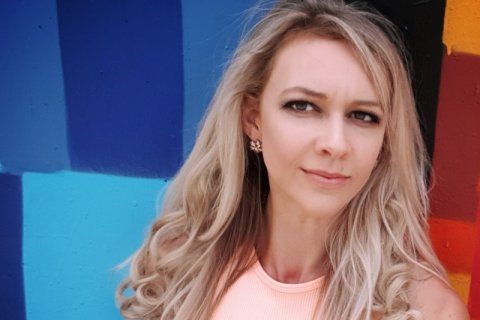Interview with Anne Rainville, researcher

I’m Dr. Anne Rainville: my field of expertise is the dynamic interplay between governments and markets, and how the demand-side can be leveraged to trigger and steer innovation. I enjoy crossing the boundary between academic research and on-the-ground practice, developing decision-support methodologies for complex problems. In 2020 I joined the Copernicus Institute of Sustainable Development at Utrecht University to pursue my interests in research and teaching, which I find very rewarding. I am also an affiliated member of the Utrecht University Centre for Public Procurement because of my interest in the interplay between governments and markets and innovation.
Prior to this, I co-founded a company in the Netherlands as a spin-off from the European Assistance for Innovation Project, furthering and applying the methodology for innovation procurement in national and international projects. For my studies, I completed a PhD in Economics at TU Berlin, on Opening Innovation Procurement - Roles for Standardization, Collaboration & Intermediation. During this time I also undertook activities toward my European Climate Knowledge and Innovation Community (ClimateKIC) PhD Label. This label has been developed to provide PhD students with entrepreneurial and innovation thinking skills. I also established a wide network from this. My roots are in Alberta, Canada, where I began with a BSc in Science and Technology Studies, followed by an MA in Communications Studies with a specialization in Energy and Environmental Systems.
Beyond academia, music is my love and my passion. In 2020, I founded the company AnneX Productions in the Netherlands, under which I make practical and theoretical tutorials on music production. Under the artist name AnneX, I produce and perform this music for audiences and on YouTube. You can read my motivation and approach to making hardcore electronic music in a recent interview for the German Hard Facts News. Lately I’ve been involved in setting up a group of women in the hard dance scene, and at the moment we are doing a series of films highlighting experiences of women in the industry, in which women are greatly underrepresented.
What are you working on and why?
Currently, my time at the university is split between teaching and research. I teach various courses at the bachelors and masters level, in Innovation Studies as well as in Sustainable Business and Innovation. In these courses I get to introduce published research I have done, such as on the role of standards for innovation in green public procurement and on circular economy. I’m supervising masters students too at the moment, and they are working on standardization strategies for public procurement, the trends in the use of environmental award criteria in public tenders across Europe, and the role of technological innovation for circular economy transitions. For the later topic, I am also pursuing my own research with a colleague, tracking national and sectoral progress using patent analysis to examine material impacts of circular business models that have implemented IP or innovation.
What do you get out of bed for every morning? And is that different because of the COVID-19 crisis?
Music!
Is there anything you appreciate in these changing circumstances?
The pandemic opened my eyes to the power of the vested interests of parties engaged in public procurement, from both sides. I learned about many interesting practices being undertaken, particularly with respect to the procurement of personal protective equipment (PPE), as enabled by the procurement legislation of various countries. From the supply side, one example of this was suppliers stockpiling PPE in warehouses and waiting until demand – as stimulated by the competition of countries with one another – hit ridiculously high prices. From the demand side, the federal government of the United States was in bidding wars against individual states for PPE and ventilators; another example was them using the state of urgency to legally justify intervening supply streams to purchasers at the state and local levels, to either centrally stockpile them or to re-sell them to buyers from abroad.

One positive opportunity created by the pandemic was the ability for medical facilities to invest in more innovative solutions, which could assist in their daily operations while also better preparing them for the next outbreak. I was fortunate enough to be part of the first webinar from DG Grow to public procurers across Europe for how they could take advantage of these opportunities from a business case perspective.
After the crisis we have to go back to our old life or not?
I think the pandemic forced people to slow down and reevaluate what is important to them, and also has created openness to doing things differently. This means public procurers and project managers may be more open to conducting innovation procurement, and understanding the potential benefits that can be gained from careful planning and the systemic effects of our decisions. Innovation procurement includes steps that take time and careful consideration, such as user consultation, prior art and standards assessment, market consultation, and value calculations. Also, due to the massive financial requirements of COVID-19 response efforts, cost constraints mean that contracting authorities may be more interested in approaches that can give greater value for their money, which is a driving factor for innovation procurement.
Which teacher have you not forgotten throughout your study curriculum and why?
My master’s supervisor, Dr. Richard Hawkins, at the University of Calgary has been an incredible mentor and friend over the last 10 years. He saw potential in me and really believed in me, helping me develop as a researcher and a person. I am so grateful for everything he’s done, and I wouldn’t be where I am today without him.
Name your greatest ambition or your best dream (or both)?
Academically, I want my ideas regarding innovation procurement to make a significant contribution to the field, which is relatively new but quickly growing in popularity. The following two papers will be most influential in this. Alongside these, in 2016 I received a Best Paper Award at the International Public Procurement Conference (IPPC) in Bali for my empirical work on the heterogeneity of innovation procurement across Europe, which built upon procurement taxonomies to identify types of procuring agencies. This was a great motivation for me to keep going.
My research on standards for innovation in green public procurement created a foundation for integrated understanding of the functions of standards - and applicability of standardization for environmental improvement. Its framework provides a conceptual space for public procurers to better visualize characteristics of products and services when making tender design decisions based on functionality and rewarding performance.
My most recent work – published in Research Policy – helps policy makers and practitioners understand how intermediation can facilitate a more circular economy. The research calls for greater insight to discover how to best combine buyers’ motivations for cost savings, sellers’ motivations of increased returns, and the sustainability requirements often imposed by third parties. These dynamics will mark transitions toward circularity as further projects arise, offering a more permanent role for intermediation.
Musically, I want to be able to produce music to a high degree of originality and quality; I want this music to be made accessible to people, and that when they listen to it, it resonates deeply with them. Maybe you can summarize this as “Famous DJ”.

